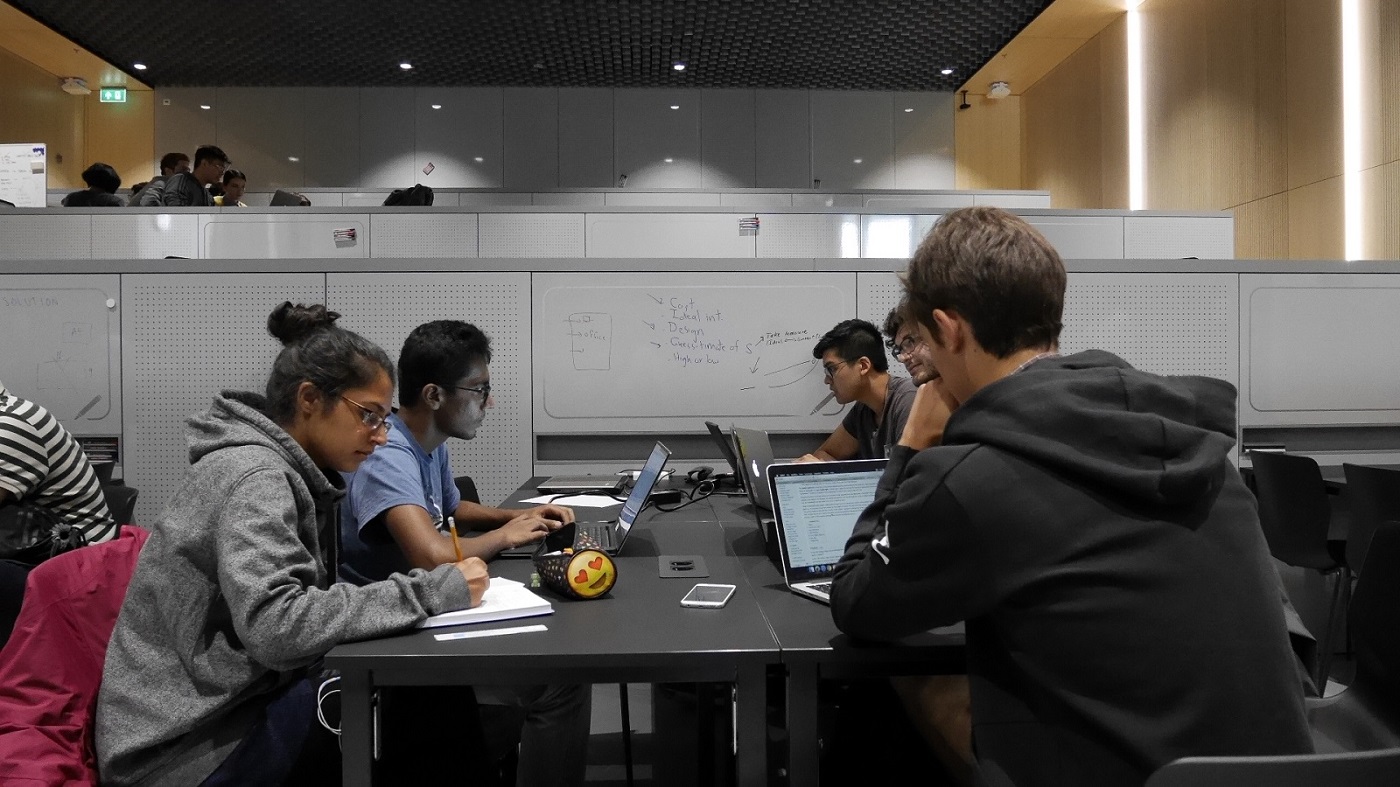No two cum laudes are alike, Delta concluded two years ago after research. TU Delft faculties appeared to uphold different criteria. What is the situation now?
According to Board member Rob Mudde, a degree programme with plenty of group practicals and projects will show a different score to degree programmes which revolve around individual activities. (Photo: Connie van Uffelen)
By Mirjam van der Ploeg and Connie van Uffelen
Two years ago, Delta delved into the cum laude percentages at all the faculties and looked at the criteria where there were large differences. The percentages and the requirements for a cum laude seemed to vary quite widely. Former Board member Anka Mulder said at the time that it was important to talk to the exam committees and that there should not be too large differences.
For 2017, there are again major differences, especially among bachelor students. Technology, Policy and Management (TPM) has the fewest cum laudes at only 1% while Electrical Engineering, Mathematics and Computer Science has the most at 21%.
At degree level, the following points stood out.
- Comparatively many cum laudes in the engineering and policy analysis master: 30% (nine of the 30)
- Comparatively many cum laudes in Applied Mathematics: 29% (22 of the 76)
- Only at the Faculty of Applied Sciences did any students in 2017 pass with cum laude in their first-year diploma: 17%.
Has anything happened to the criteria for a cum laude in the last two years? Have the rules become more consistent? And should faculties even adhere to the same rules? According to Board member Rob Mudde, the percentage of cum laudes should be between about five and seven per cent. This is currently 9% of bachelors and 11% of masters.
‘Degree programmes are different so criteria can be different’
Mudde explains that practice shows that generic guidelines do not lead to similar numbers of cum laude students in all degree programmes. “A degree programme with plenty of group practicals and projects will show a different score to degree programmes which revolve around individual activities,” Mudde continues.
TU Delft is in part striving for greater alignment, but at the same time is taking the different outcomes of the different faculties and degree programmes into account. “Alignment is not a goal in itself,” he says. “Degree programmes are different so criteria can be different. The upper extreme and the average figure will vary, for example.”
During their meetings, the Board of Examiners regularly see these differences, says Mudde. “They really give cum laudes serious thought.” He points out that if a criterion changes, it takes a couple of years before the outcomes are visible.”
Differences in students’ motivation
According to Mudde, localised differences may also be related to differences in students’ motivation. He believes that an analysis of the situation would show that group behaviour may play a role, particularly among international students. “They do a lot, if not everything, to graduate cum laude.”
Among Dutch students, this is less common while taking on a public function is important. “The other side of the coin in striving for excellence brings increased stress to the students, so you could pose the question whether it is even desirable to raise the cum laude criteria,” says Mudde.
Do you have a question or comment about this article?
c.j.c.vanuffelen@tudelft.nl


Comments are closed.